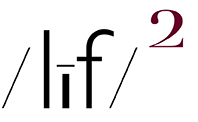roadside things ~ Ore Bed Rd / Redford, NY - in the Adirondack PARK (click to embiggen)
late autumn scrub ~ Westville, NY (click to embiggen)
late autumn apples ~ Bellmont Center, NY (click to embiggen)
"...with most of my photographs, the subject appears as a found object, something discovered, not arranged by me. I usually have an immediate recognition of the potential image, and I have found that too much concern about matters such as conventional composition may take the edge off the first inclusive reaction." - Ansel Adams
"Now to consult the rules of composition before making a picture is a little like consulting the law of gravitation before going for a walk." - Edward Weston
If one were to google around the web searching for quotes from picture makers, Photography Division, the idea at the root of the Adams' and Weston's quotes - see and react, don't think about it - can be found to originate from a wide swath of picture makers. For a spatio-visual thinker - one who thinks in pictures - that root idea makes a lot of sense. For verbal thinkers - one who thinks in words - not so much.
Without a doubt, I am predominately a visual thinker - obviously everybody can do both. People in the middle of the scale use both equally. Those lying towards the either extremity of the scale tend to favour one over the other most of the time. As a personal example, a math problem has always been a picture in my head. It is also why I have never consulted the rules of composition when making a picture.
To wit (as found on the web):… fundamentals in visual thinking lay the ground work for many design disciplines such as art ... [where] ... Two of the most influential aspects of visual composition in these disciplines are patterns and color. Patterns are ... prevalent in many different aspects of everyday life ...
When asked how I "compose" my pictures, my answer is always the same; I picture what I see. I suspect that if a predominately verbal thinker were to be asked the same question, their answer would be formulated by the recitation of some aspect of the rules of composition.
Since most people think both ways, can a predominately verbal thinker "train" their brains to think more visually?
I don't know the answer to that question. Perhaps that question is the topic for another google around the web.
